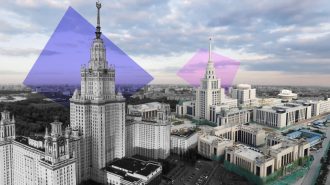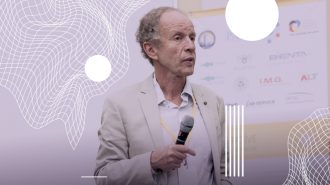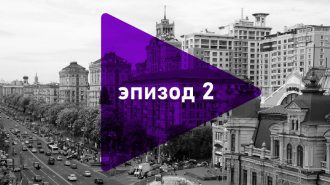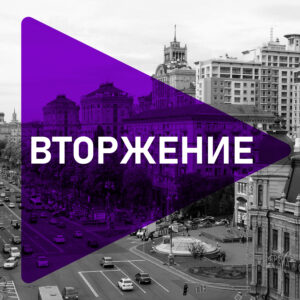"The tail is a very useful thing and modern man could use it". Alexander Markov and Olga Orlova discuss the evolutionary meaning of tail loss in episode 14 of the CounterEvolution podcast.
listen
An international team of scientists analysed 1,371 reports of Gaza war casualties and found that the information circulated by the world's leading media outlets was falsified. In episode 15 of the Invasion: Science in a Time of War podcast, we speak with the initiator of this study, sociologist Tatiana Glaser.
Current demographic dynamics suggest radical changes around the world. Fertility will fall everywhere, but the main problems are not related to this, but to uneven population growth in different countries. Scientists predict a huge increase in the proportion of Africans by 2100 and a marked depopulation of Europe and North America. Alexander Markov and Olga Orlova discuss the main demographic shocks in the 10th episode of the CounterEvolution podcast.
Could humans have done without religion in their development? Apparently not. Whatever the genesis of religious consciousness, our mind is so organised that belief in the supernatural, omens, fortune-telling, and spirits is almost inevitable. Alexander Markov, Doctor of Biological Sciences, talks about this in episode 12 of the CounterEvolution podcast.
Approximately 4% of the world's people suffer from depressive disorder, and this figure is higher in women than in men. In the past, doctors used to call it melancholia and could not find a universal treatment. Now they have learnt to cope with depression quite well. And thank God, says Doctor of Biological Sciences Alexander Markov. This is the 11th episode of the CounterEvolution podcast.
In episode 13 of the podcast "Invasion: Science in a Time of War", two scientists anonymously talk about how it is possible to meet fellow travellers at the "Noon Against Putin" rally even in an Orthodox church, why professors fear denunciations from students, and how to maintain a rigorous professional level when Russian social sciences and humanities have been set back twenty years.
In episode 12 of the podcast Invasion: Science in a Time of War, two scientists talk anonymously about how hard it is to leave Russia, how internal emigration helps them keep their sanity, why they can no longer discuss the war with colleagues, the difficulty of understanding the true position of the leadership, and what they think about the turn of Russian science to the East.
How science helps resist the archaic, explains Eugene Koonin, Senior Investigator at the National Center for Biotechnology Information at the U.S. National Institutes of Health.
How do random variability, heredity, and selection work in cultural evolution? Wars as fluctuations in cultural evolution, lessons from Franklin's missing expedition, hierarchy of prestige, copying of skills, level of trust and natural selection of ideas, competitive environments without wars — Alexander Markov talks about all this in episode 4 of the podcast «Invasion».
Is modern war in terms of cultural evolution the norm or the terrible exception? Was Steven Pinker wrong when he wrote his book «The Best in Us: Why There's Less Violence in the World»? Aleksandr Markov, doctor of biological sciences, argues in episode 3 of Olga Orlova's podcast «Invasion. Science in a Time of War.»
What are the ideological, historical, mythological, and psychological reasons for the Russian invasion of Ukraine. We talk about this in a podcast interview with the author of the book The End of the Russian World? On the Ideological Foundations of Russian Aggression, Polish diplomat and publicist Piotr Skwieczynski.
Why do we need an honest examination of science in Russia today? And is it really needed? Why has Russian society failed to demand for quality education in the humanities and social sciences? Why do we need Dissernet in a country where rational thinking is suppressed? Episode 2. The Invasion Podcast.
Science during war with the voices of scientists from Ukraine. Why Ukrainian scientists are not given scientific visas to the USA and other countries? How to help scientists who stay to work in Ukraine? What kind of science is possible in Ukraine of the future? Episode 1. Podcast Invasion.














